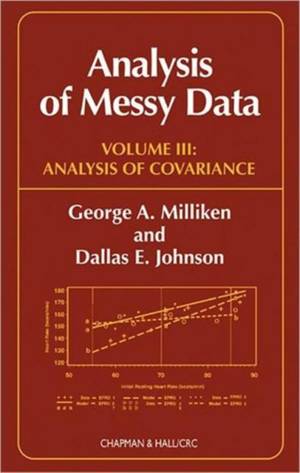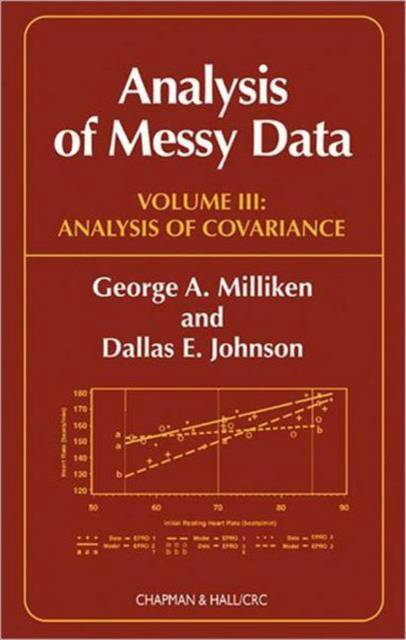
Je cadeautjes zeker op tijd in huis hebben voor de feestdagen? Kom langs in onze winkels en vind het perfecte geschenk!
- Afhalen na 1 uur in een winkel met voorraad
- Gratis thuislevering in België vanaf € 30
- Ruim aanbod met 7 miljoen producten
Je cadeautjes zeker op tijd in huis hebben voor de feestdagen? Kom langs in onze winkels en vind het perfecte geschenk!
- Afhalen na 1 uur in een winkel met voorraad
- Gratis thuislevering in België vanaf € 30
- Ruim aanbod met 7 miljoen producten
Zoeken
€ 320,95
+ 641 punten
Omschrijving
Analysis of covariance is a very useful but often misunderstood methodology for analyzing data where important characteristics of the experimental units are measured but not included as factors in the design. Analysis of Messy Data, Volume 3: Analysis of Covariance takes the unique approach of treating the analysis of covariance problem by looking at a set of regression models, one for each of the treatments or treatment combinations. Using this strategy, analysts can use their knowledge of regression analysis and analysis of variance to help attack the problem. The authors describe the strategy for one- and two-way treatment structures with one and multiple covariates in a completely randomized design structure. They present new methods for comparing models and sets of parameters, including beta-hat models. They carefully investigate the effect of blocking, explore mixed models, and present a new methodology for using covariates to analyze data from nonreplicated experiments. Analysis of covariance provides an invaluable set of strategies for analyzing data. With its careful balance of theory and examples, Analysis of Messy Data: Volume 3 provides a unique and outstanding guide to the strategy's techniques, theory, and application.
Specificaties
Betrokkenen
- Auteur(s):
- Uitgeverij:
Inhoud
- Aantal bladzijden:
- 622
- Taal:
- Engels
- Reeks:
- Reeksnummer:
- nr. 3
Eigenschappen
- Productcode (EAN):
- 9781584880837
- Verschijningsdatum:
- 29/08/2001
- Uitvoering:
- Hardcover
- Formaat:
- Genaaid
- Afmetingen:
- 161 mm x 247 mm
- Gewicht:
- 1016 g

Alleen bij Standaard Boekhandel
+ 641 punten op je klantenkaart van Standaard Boekhandel
Beoordelingen
We publiceren alleen reviews die voldoen aan de voorwaarden voor reviews. Bekijk onze voorwaarden voor reviews.









